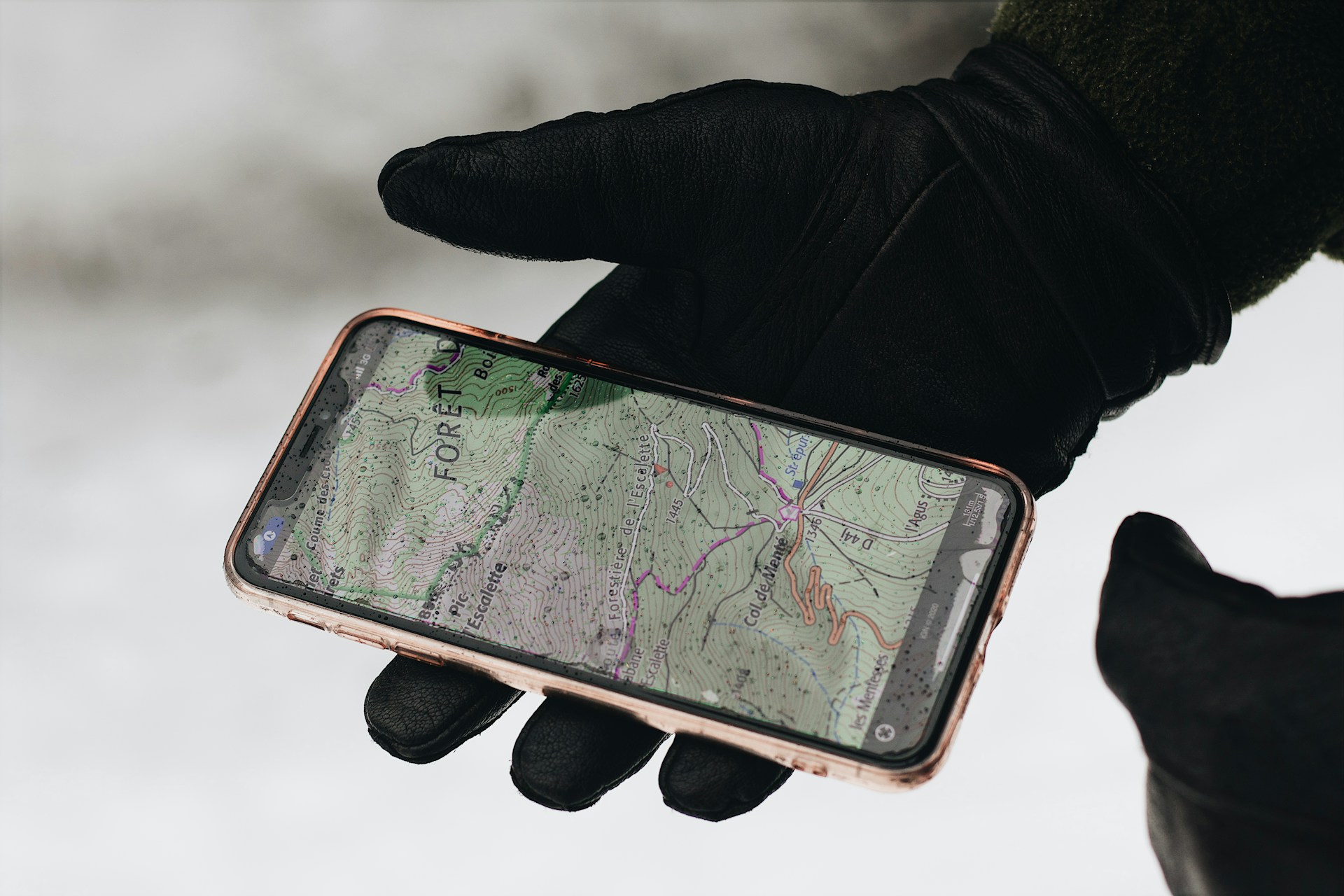Owning a parrot can be a rewarding experience, but it also comes with responsibilities. One of the biggest concerns for parrot owners is the potential for their feathered friends to fly away and get lost.
This can be a heartbreaking and stressful situation. advancements in technology have introduced GPS trackers designed specifically for parrots, offering a solution to this problem.
The Importance of Keeping Parrots Safe
Parrots are intelligent and social animals that form strong bonds with their owners. Losing a parrot can be emotionally devastating, not to mention the potential dangers they may face in the wild.
Parrots are not equipped to survive on their own, as they rely on their owners for food, shelter, and safety. Additionally, they can be vulnerable to predators, environmental hazards, and even poaching.
Risks of Parrots Flying Away
Despite our best efforts, parrots can sometimes escape or fly away. This can happen due to various reasons, such as:
- Doors or windows are left open accidentally.
- Sudden loud noises or disturbances that startle the bird.
- Damage or failure of cages or aviaries.
- Mishandling or improper restraint during transportation.
Once a parrot is lost, it becomes increasingly difficult to locate and recover them, especially in urban or densely populated areas.
Overview of GPS Trackers for Parrots
GPS trackers for parrots are small devices that can be attached to the bird’s leg or harness. These trackers use satellite technology to pinpoint the parrot’s location in real time, allowing owners to track their movements and quickly locate them if they fly away.
Benefits of Using GPS Trackers for Parrots
Ability to Locate a Lost or Escaped Parrot
The primary benefit of using a GPS tracker is the ability to quickly locate your parrot if it flies away or escapes. With real-time tracking, you can immediately start searching in the right area, increasing the chances of recovery.
Peace of Mind for Parrot Owners
Knowing that your parrot is equipped with a GPS tracker can provide immense peace of mind. You can rest assured that even if your bird does fly away, you have the means to find it and bring it back home safely.
Increased Chances of Recovery
GPS trackers significantly increase the chances of recovering a lost parrot. Without a tracker, the odds of finding a missing bird can be extremely low, especially in urban areas or after an extended period.
Potential to Save a Parrot’s Life
In some cases, a GPS tracker can save a parrot’s life. If a bird finds itself in a dangerous situation, such as being trapped or injured, the tracker can help you locate and rescue it before it’s too late.
Risks and Drawbacks of GPS Trackers
While GPS trackers offer many benefits, it’s important to be aware of potential risks and drawbacks:
Potential for Skin Irritation or Discomfort
Depending on the type of tracker and how it’s attached, there is a risk of skin irritation or discomfort for the parrot. Proper fitting and monitoring are essential to ensure the bird’s well-being.
Possibility of the Tracker Falling Off
If not secured properly, GPS trackers can fall off or become detached from the parrot. This can lead to the loss of the tracker and defeat its purpose.
Battery Life and Maintenance Concerns
GPS trackers require regular battery replacements or charging. Failure to maintain the tracker’s battery can result in it becoming inoperable and unable to provide location data.
Cost of GPS Trackers and Associated Services
High-quality GPS trackers and the associated tracking services can be expensive, especially for larger or multiple parrots. This may not be a viable option for some parrot owners with limited budgets.
Types of GPS Trackers for Parrots
There are several types of GPS trackers available for parrots, each with its advantages and disadvantages.
Leg Bands with GPS
Leg band GPS trackers are small devices that attach to the parrot’s leg, similar to a traditional identification band. These trackers are lightweight and relatively unobtrusive, but they may not be suitable for all parrot species or sizes.
Pros:
- Lightweight and less bulky.
- Minimally restrictive for the bird’s movements.
- Easy to attach and remove.
Cons:
- Can potentially cause discomfort or irritation in the leg.
- Risk of the band falling off or being chewed on.
- Limited battery life due to small size.
Harness-mounted GPS Trackers
Harness-mounted GPS trackers are attached to a specially designed harness that the parrot wears. These trackers are typically larger and more visible but offer a secure attachment point.
Pros:
- Secure attachment, reducing the risk of falling off.
- The larger size allows for longer battery life.
- Comfortable and adjustable fit.
Cons:
- Bulkier and more visible on the bird.
- Potential for discomfort or restricted movement.
- Requires training the parrot to wear a harness.
Backpack GPS Trackers
Backpack GPS trackers are designed to be worn like a small backpack on the parrot’s back. These trackers offer a larger size for better battery life and features but can be more cumbersome for the bird.
Pros:
- Large size allows for extended battery life and additional features.
- Secure attachment to the bird’s body.
- Adjustable fit for different parrot sizes.
Cons:
- Bulky and potentially restrictive for the bird.
- May require extensive training for the parrot to accept it.
- Risk of discomfort or skin irritation.
Factors to Consider Before Using a GPS Tracker
Before deciding to use a GPS tracker for your parrot, it’s important to consider several factors:
Size and Weight of the Parrot
The size and weight of your parrot will determine which type of GPS tracker is most suitable. Smaller parrots may not be able to comfortably wear larger or heavier trackers, while larger birds can accommodate more substantial devices.
Activity Level and Flight Tendencies
Some parrots are more active and prone to flying than others. If your parrot is particularly energetic or has a strong tendency to fly, you may need a more secure and durable GPS tracker to withstand its movements.
Outdoor vs. Indoor Environment
If your parrot spends most of its time indoors, a GPS tracker may not be as necessary. However, if your bird is allowed to fly outdoors or has access to open spaces, a GPS tracker can be a valuable safety measure.
Budget and Cost of the Tracker
GPS trackers and their associated services can vary greatly in cost. It’s important to consider your budget and the ongoing expenses of maintaining and operating the tracker.
Tips for Using GPS Trackers on Parrots
If you decide to use a GPS tracker for your parrot, follow these tips for optimal safety and effectiveness:
Proper Training and Acclimation
Introduce the GPS tracker gradually and provide positive reinforcement to help your parrot become comfortable with wearing it. This process may take time and patience, but the tracker needs to be accepted and not cause undue stress.
Monitoring Battery Life and Signal Strength
Regularly check the tracker’s battery life and signal strength to ensure it’s functioning properly. Replace batteries or recharge as needed, and be aware of any potential signal interference or obstructions in your area.
Securing the Tracker to Prevent Loss
Ensure the GPS tracker is securely attached to your parrot to prevent it from falling off or being removed. Check the attachment regularly and adjust as necessary.
Setting Up Alerts and Notifications
Many GPS tracking services offer alerts and notifications when the parrot moves outside a designated area or if the tracker’s battery is low. Set up these features to receive timely updates and act quickly if necessary.
Practicing Recovery Procedures
Have a plan in place for how to locate and safely recover your parrot if it does fly away. Practice using the tracking app or software, and familiarize yourself with the process beforehand.
Alternatives to GPS Trackers
While GPS trackers offer a valuable solution for locating lost parrots, they may not be suitable or practical for everyone.
Here are some alternatives to consider:
Microchipping
Microchipping involves implanting a small chip under the parrot’s skin, which can be scanned to identify the owner if the bird is found. However, microchips do not provide location data and rely on the bird being found and scanned.
Closed Aviaries or Flight Cages
Keeping your parrot in a secure, enclosed aviary or flight cage can prevent them from flying away in the first place. However, this limits their freedom and may not be suitable for all parrot owners or living situations.
Clipping Feathers (with Caution)
Clipping a parrot’s flight feathers can prevent or limit their ability to fly and potentially reduce the risk of flying away. However, this practice is controversial and should be done with caution and under the guidance of a qualified avian veterinarian or experienced parrot owner. Improper feather clipping can cause discomfort, stress, and potential injury to the bird.
Vigilant Supervision
Regardless of whether you use a GPS tracker or not, vigilant supervision is crucial when allowing your parrot to fly or be out of its cage. Never leave your parrot unsupervised in an open area, and always be prepared to retrieve them if they attempt to fly away.
Legal Considerations
Before using a GPS tracker on your parrot, it’s important to be aware of any legal considerations or regulations in your area. Some jurisdictions may have laws or restrictions regarding the use of tracking devices, especially in public spaces or on animals.
There may be privacy concerns or ethical considerations to take into account when tracking the movements of your parrot, particularly if it flies into private property or areas where tracking could be considered an invasion of privacy.
Conclusion
Deciding whether to use a GPS tracker for your parrot is a personal choice that depends on various factors, including your parrot’s size, activity level, living environment, and budget. While GPS trackers offer a valuable solution for locating lost or escaped parrots, they also come with potential risks and drawbacks that must be carefully considered.
Ultimately, responsible parrot ownership involves taking measures to ensure your feathered friend’s safety and well-being. Whether you choose to use a GPS tracker or explore alternative solutions, prioritizing your parrot’s security and implementing preventative measures to reduce the risk of them flying away is crucial.



